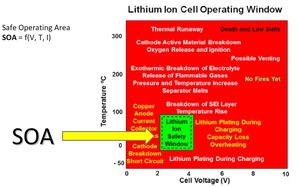Police have cracked down on pro-European Union protestors in Georgia, arresting several opposition leaders during demonstrations on Sunday. Thousands of demonstrators had gathered to demand new parliamentary elections and express frustration over the government's decision to suspend EU membership discussions. Notably, opposition leaders Nika Melia and Gigi Ugulava were among those detained, marking another significant chapter in the nation's recent political turmoil.
The atmosphere was charged as protestors briefly blocked major highways leading to Tbilisi, the Georgian capital. The protests reignited after Prime Minister Irakli Kobakhidze announced on November 28, 2023, his cabinet would not pursue opening EU membership talks until 2028. This announcement stirred outrage among citizens who have been openly displeased with the Georgian Dream party's recent actions.
During the Sunday protests, Melia, the former chairman of one of the main opposition parties, claimed to have been physically assaulted by police during his time at the station. "At the police station, I was sitting on a chair in handcuffs and was kicked by a police officer," Melia recounted to journalists.
Ugulava, the former mayor of Tbilisi and another prominent opposition figure, echoed similar sentiments about police violence at the protests. Photographs and unverified videos shared on social media depicted violent clashes between police dressed in balaclavas and protestors. Witnesses reported incidents where demonstrators were beaten and carried away by police to receive medical attention.
The protests have been part of larger dissatisfactions with the governmental structure since the October 2023 parliamentary elections, which opposition groups claim were rigged. Tensions had started brewing even prior to the election results, but they have intensified significantly since the government's suspension of EU talks.
The participation of police on Sunday was heavily noticeable, with reports indicating they had issued warnings against blocking roads, claiming such actions constituted criminal offenses. Melia's lawyer stated he was detained under charges relating to administrative offences and was released shortly after midnight. Despite their release, the detentions of opposition figures triggered quick condemnation from the European Union.
Kaja Kallas, the EU's foreign policy chief, strongly criticized the police's actions. She emphasized via social media, "The brutal crackdown on peaceful protesters, journalists and politicians tonight in Tbilisi is unacceptable. Georgia falls short of any expectation from a candidate country.” Her strong words reflect more than mere discontent; they signal growing international scrutiny over Georgia’s adherence to human rights and democratic practices.
The protests carried stories from multiple participants. Kote Baramia, a university student involved, stated, "All this police violence just proves the government is scared. Georgians will not back down, our democracy is on the line." His remarks resonate with many within the crowd, showcasing the sentiment of fearlessness and determination among protestors.
Georgia's rights ombudsman, Levan Ioseliani, also voiced concern over the situation, stating, "The facts of improper treatment and excessive use of force by the police against citizens, journalists, and politicians are disturbing.” His comments play directly to the crux of the protests—not just the demand for new elections, but the broader quest for the integrity of democracy and civil liberties.
This significant crunch time could redefine Georgia’s political future. The ruling Georgian Dream party faces intense scrutiny from both domestic opposition and international allies. Protests had dwindled recently, but the atmosphere surrounding the country suggests renewed vigor among opponents who refuse to accept the status quo.
While the government continues to justify its actions—partly as measures to maintain order—many citizens view this crack down as characteristic of severe democratic backsliding, causing fears of an increasing alignment with Russian influence.
The fight for democracy and EU integration becomes increasingly complex as Georgian Dream imposes stricter measures and intensive policing tactics, echoing tactics employed by similar regimes worldwide. Observers note the swell of the movement signifies not just political turmoil, but also the aspirations of Georgians for freedom and democratic governance.
Rallies are expected to continue, with many determined not to back down under pressure. The EU’s reaction to this violent response could play a pivotal role, guiding future dialogues around membership and democracy.
The upcoming days and weeks will be telling as Georgia navigates these turbulent waters. How the government responds to continued protests could shape the national narrative and alter the course of its future both within the EU and on the global stage.



